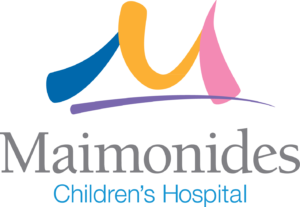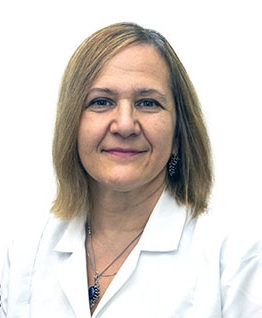Detailed and compassionate service for diabetes and more

The whole family can be affected when a child has an endocrine disorder, which affects the glands and hormones. Common endocrine disorders include diabetes and Cushing’s Syndrome. We provide a coordinated approach to diagnosing and treating these problems, as well as growth and puberty disorders in children and adolescents. Our team takes the time to explain our pediatric medical services and care plans in a stress-free environment.
As Brooklyn’s only children’s hospital, we offer expertise in treating a wide range of rheumatologic conditions that are rare or complex.
Pediatric endocrinology
Endocrinology is a branch of medicine that deals with disorders of the endocrine glands, such as the pituitary, thyroid, adrenal and gonadal glands. These glands secrete hormones that help regulate growth, metabolism, sexual development, and many other body functions.
A pediatric endocrinologist is a pediatrician with additional training in the diagnosis and treatment of endocrine disorders. Endocrine conditions can be congenital (present at birth) or acquired later in childhood. Examples of congenital conditions include congenital adrenal hyperplasia, growth hormone deficiency, and hypothyroidism. Acquired conditions can result from infection, trauma, or tumors. Examples of acquired conditions include type 1 diabetes mellitus, Cushing syndrome, and Turner syndrome.
Conditions we treat
Adrenal disorders
Characterized by too much or too little production of hormones by the adrenal glands, which are located on top of the kidneys, adrenal disorders can include:
- Congenital adrenal hyperplasia (CAH)
- Cushing syndrome
- Addison disease
Bone and mineral metabolism disorders
These disorders are characterized by problems with calcium, phosphorus, and vitamin D metabolism. They can include:
- Osteoporosis
- Rickets and osteomalacia
- Hypoparathyroidism and hyperparathyroidism
Diabetes Type 1 and 2
The most common type of diabetes in children, type 1 diabetes mellitus (formerly called juvenile diabetes) is characterized by an absolute insulin deficiency. Type 2 diabetes mellitus is the most common form of diabetes in adults, but is being seen more frequently in children and adolescents. It is characterized by insulin resistance, which means that the body cannot use insulin properly.
Maturity Onset Diabetes of the Young (MODY)
MODY is a form of monogenic diabetes, which means that it is caused by a mutation in a single gene. MODY usually develops at a younger age and runs in families.
Obesity
Children who are obese are at risk for a number of health problems, including type 2 diabetes mellitus, hypertension, and sleep apnea.
Puberty disorders
Puberty is the process of sexual maturation. Puberty disorders can be caused by problems with the pituitary, gonadal, or adrenal glands and can include:
- Precocious puberty (early onset of pubertal changes)
- Delayed puberty (no pubertal changes by age 14 in boys and age 13 in girls)
- Growth hormone deficiency
- Turner syndrome
- Klinefelter syndrome
- Disorders of growth
These disorders are characterized by too much or too little growth. They can include short stature and gigantism.
Disorders of sexual differentiation
These disorders are characterized by ambiguity of the external genitalia.
Neonatal hypoglycemia and congenital hyperinsulinism
Hypoglycemia is low blood sugar. Congenital hyperinsulinism (CHI) is a condition in which there is too much insulin in the blood.
Thyroid disorders
The thyroid gland is located in the neck and produces hormones that help regulate metabolism. Thyroid disorders can impact growth, pubertal development, and other body functions.
Treatments we offer
- Endocrine stimulation tests
- Glucose sensor placement and reading
- Insulin pump education and management
- Thyroid sonogram
Our dedicated team of skilled physicians, nurses, diabetic educators, and nutritionists are here for you and your child. We provide comprehensive, individualized care for children with endocrine disorders and diabetes in a caring and supportive environment.
Call (718) 283-7500 to make an appointment with Maimonides Children’s Hospital




